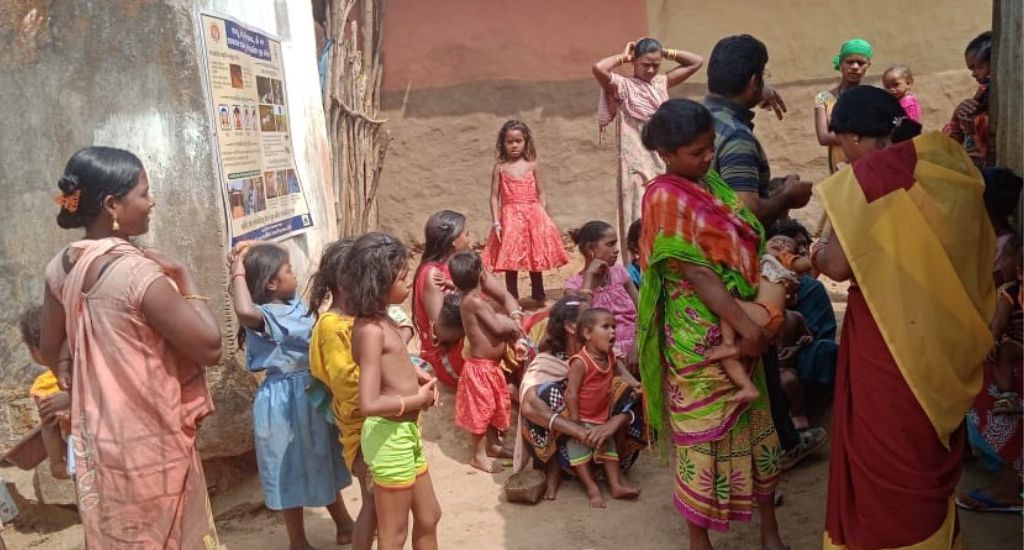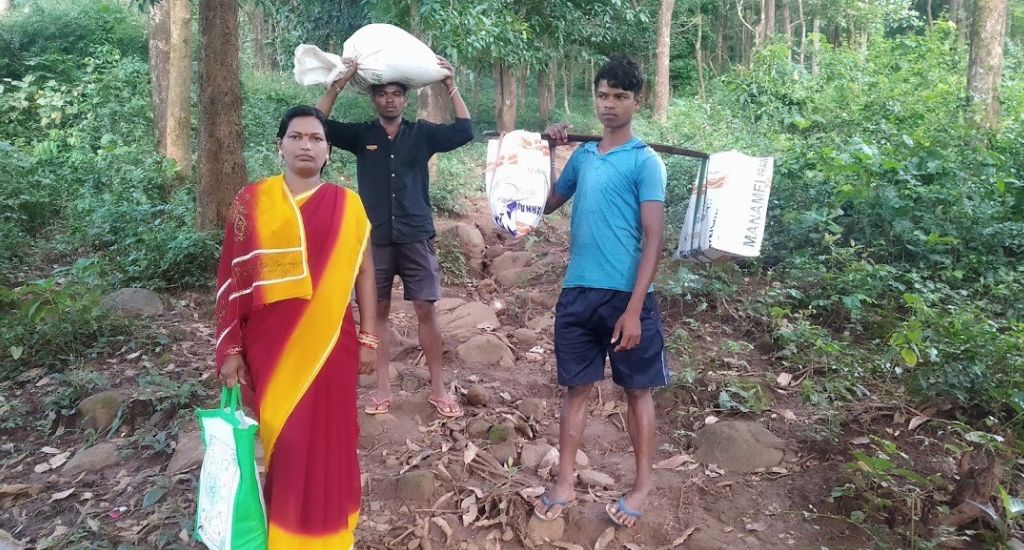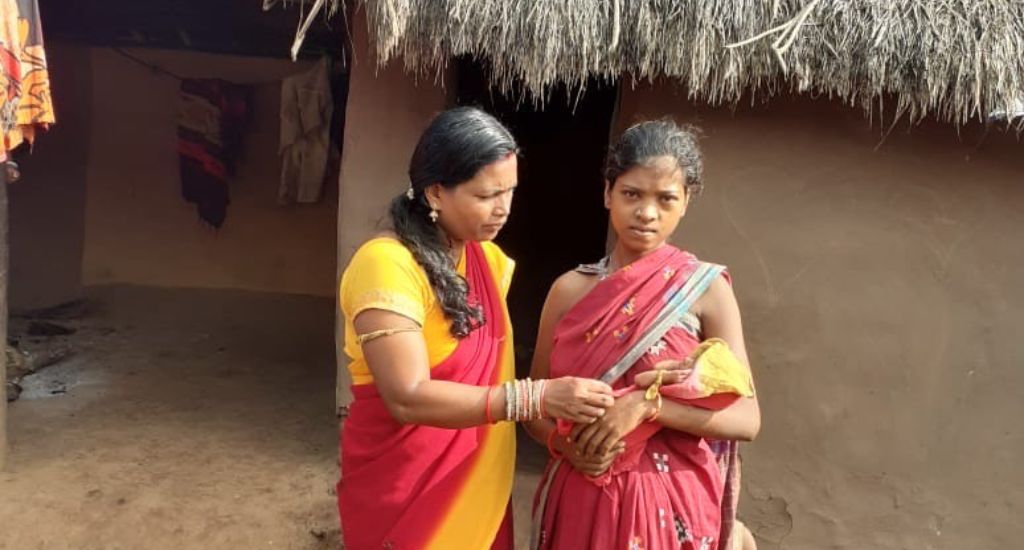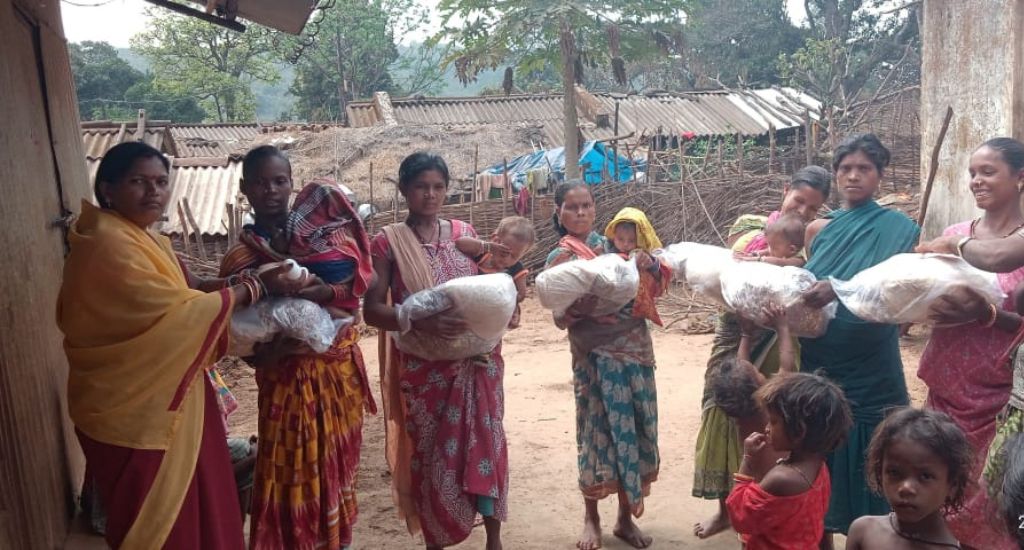
Unsung heroes of Odisha’s anganwadi centres
Despite formidable challenges like traversing a hill trail on foot, these anganwadi workers ensure that essential medical services reach those in need, even amidst Koraput’s rugged landscape.

Despite formidable challenges like traversing a hill trail on foot, these anganwadi workers ensure that essential medical services reach those in need, even amidst Koraput’s rugged landscape.
As the first light of dawn spills over the hills of Odisha’s Koraput, three women from Balaput village embark on a journey fraught with challenges and risks. Anganwadi workers Sunita Bevarta, Muni Harijan and Kuntala Gadaba traverse a perilous trail, navigating dense forests and fording a formidable river to fulfil their mission – ensuring the health of their community, one mother and child at a time.
With around 80 children and 20 women under their care, they play a vital role in their community’s well-being. From offering medical assistance to nurturing mothers and children, impact of Anganwadi workers in Odisha reverberates far and wide, embodying the essence of selflessness and service.

In the predominantly tribal and impoverished communities of Koraput, the absence of basic infrastructure poses significant challenges.
“We leave our homes with the sole purpose of caring for over 50 pregnant women and infants who rely on the services provided at anganwadi centres. Despite the challenges and risks, we continue our work because we understand the importance of our roles,” affirmed Bevarta, a 35-year-old mother of two sons.
Bevarta has been serving at Ramgarh anganwadi centre since 2016, while 27-year-old Muni Harijan is posted at Kenduguda mini anganwadi centre in Kenduguda village, and Gadaba works at Baiganpadar mini anganwadi centre in Odisha.
Also Read: Why Odisha wants a GI tag for Koraput coffee
“We are committed to serving at these three anganwadi centres spread across a 12km hilly terrain every day. Despite receiving government salaries, navigating these hills daily is no small task,” remarked 32-year-old Gadaba.

Gadaba adeptly juggles her responsibilities as an anganwadi worker from Odisha with her familial duties. Her husband, Tapan Madala, manages a seasonal business, while their son and daughter, in classes 6 and 3, attend local schools.
Muni Harijan, the mother of a young child, begins her day early to ensure her son’s attendance in school. He is in class 2. Husband Gupta Harijan toils as a daily labourer to sustain their family. Despite their own hardships, she faithfully reaches the anganwadi centre in Kenduguda every morning at 7 o’clock.
Bevarta’s husband Gopal Bebarta works as a plumber and does farming as well. Their sons study at Bairagimath School in Jeypore.
Educated at local institutions like Kotpad High School and Hardaput Girls’ High School, these women embody resilience and determination. Yet, their families struggle to make ends meet, with each household earning less than Rs 50,000 annually.
Also Read: These unschooled Odisha women are running a farm school

The recent salary hike — Rs 10,000 for anganwadi workers, and Rs 7,250 for mini anganwadi workers — by the Odisha government is a welcome relief, but their financial burdens persist. The salary barely sustains their daily needs, while the physical toll of their journey weighs heavily on their health. Nevertheless, their dedication remains unparalleled.
Their efforts have garnered recognition, with Koraput district social welfare officer Arnnapurna Kundu acknowledging the government’s commitment to women and childcare.
Though NBCC (India) Limited, a public sector undertaking under the Union ministry of housing and urban affairs, has proposed constructing roads, administrative hurdles, particularly forest clearance, persist. However, efforts are underway to address the infrastructure needs of marginalised communities, as highlighted by local MLA Tara Prasad Bahinipati.
The journey of these anganwadi workers serves as a poignant reminder of the indomitable spirit that resides within the rugged landscape of Koraput, urging everyone to strive for a brighter tomorrow, one step at a time.
Also Read: To buy supplies, millet is money in Koraput’s barter system in Odisha
The lead image at the top shows Sunita Bevarta (left) and Muni Harijan crossing a river to carry out their work. (Photo by Shreekant Sahoo)
Shreekanta Sahoo is a seasoned journalist with a decade of dedicated experience in the ever-evolving field of media.